Tour St Moritz hotel Badrutt’s Palace’s plush new wing with architect Antonio Citterio
‘You have to feel the mountains,’ says Antonio Citterio as he walks us through the new Serlas Wing, his contemporary take on Alpine vernacular at a hotel he knows well
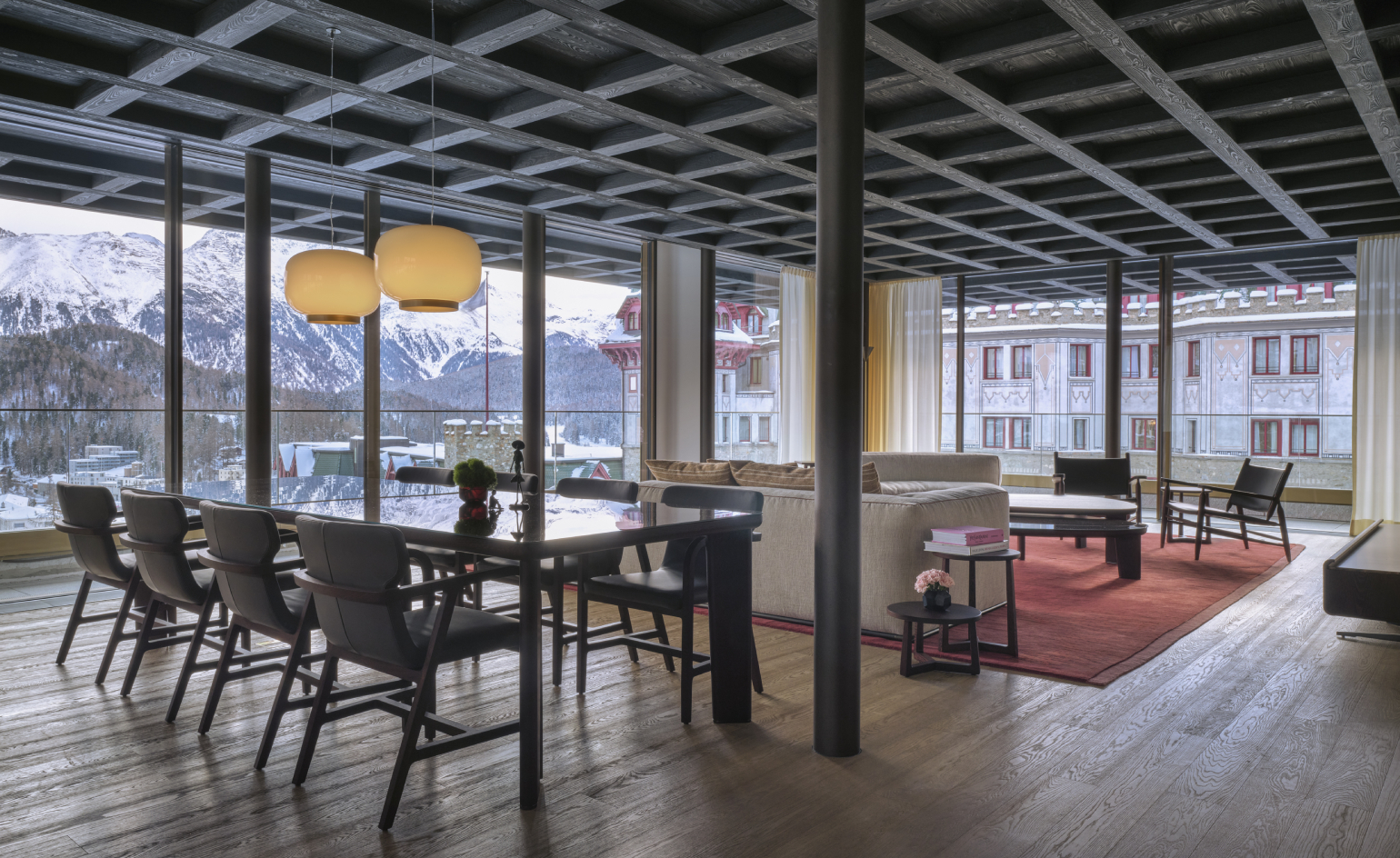
For the last 40 years, Italian architect Antonio Citterio has been driving north out of his native Milan, bound for Switzerland’s Engadin Valley and St Moritz. The classic winter resort, beloved by British aristocracy and film stars, is where he owns a traditional Alpine farmhouse and where both his son and daughter were born. As such, Citterio’s studio (ACPV Architects Antonio Citterio Patricia Viel) was a natural choice to design the new wing of Badrutt’s Palace, St Moritz’s landmark hotel.
Badrutt’s Palace introduces the new Serlas Wing
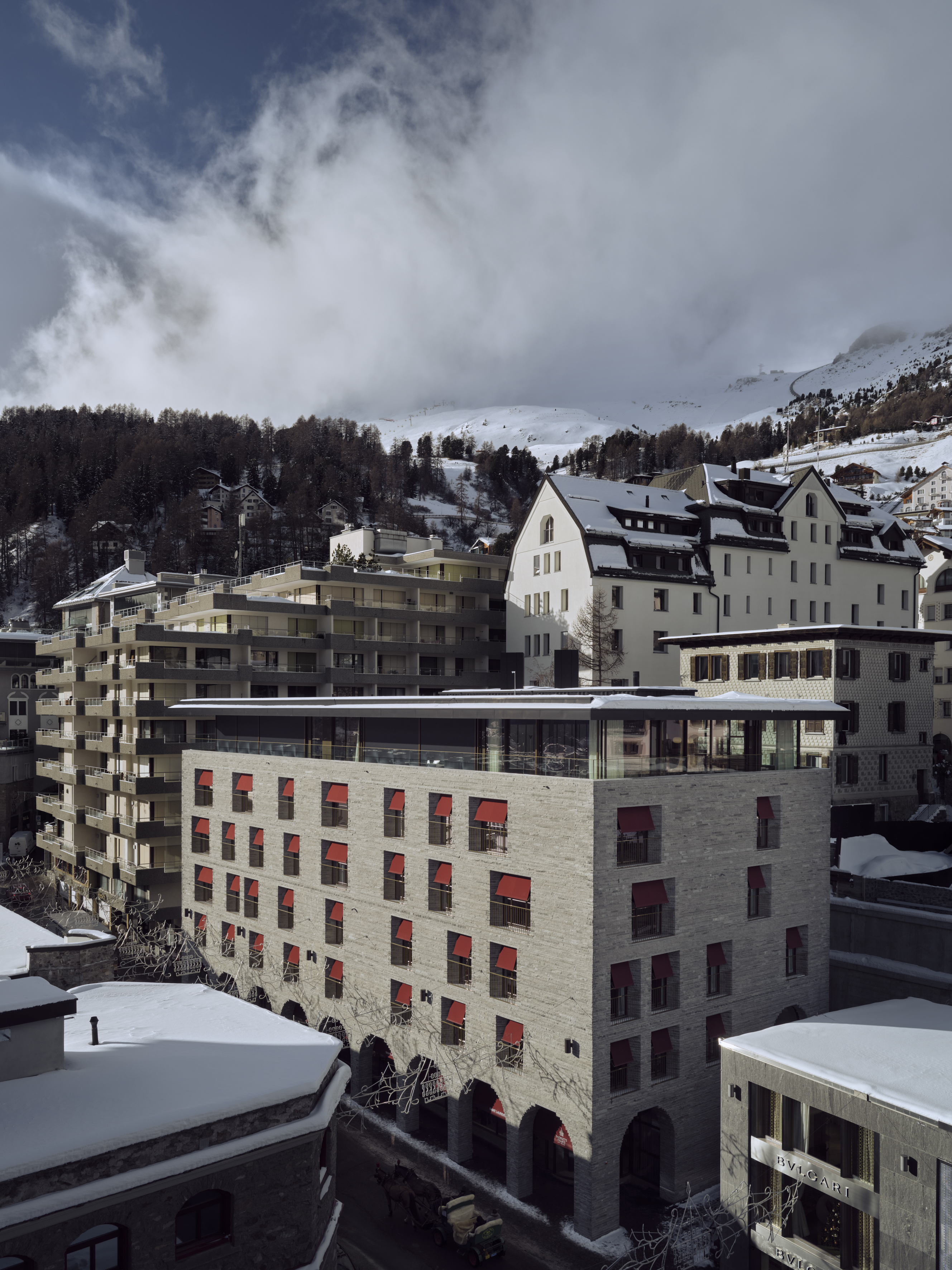
‘I have a beautiful, very personal relationship with St Moritz, and the Palace,’ Citterio smiles, as we walk through its revolving wooden doors, which were first opened in 1896 by Caspar Badrutt. ‘It was always my place to drink something – a margarita with my family – in the afternoon.’ The new Serlas Wing heralds a new contemporary chapter for the historic hotel. ‘It’s not just a new building,’ notes Citterio, ‘it’s an opportunity to create a connection with the Palace and the centre of the village. It’s something to create life.’
‘You have to feel the mountains, and you have to feel the materials’
Antonio Citterio
The architecture studio’s chief inspiration for the project came from the surrounding peaks and the locality. ‘You have to feel the mountains, and you have to feel the materials,’ says Citterio, who has thoughtfully translated the simplicity of the traditional Engadin farmhouse, much like his own, to the Serlas Wing’s façade. ‘The buildings in this village are not palazzi. The logic of many mountain houses,’ he explains, ‘was to create windows where you need it, for the sun or the view. One of our references was the carved-in window openings of the traditional Chesa Planta house from the 16th century.’ As a result, there is an asymmetry and a casual nature to the exterior of the new wing, that belies the precise interior symmetry of its bedrooms.

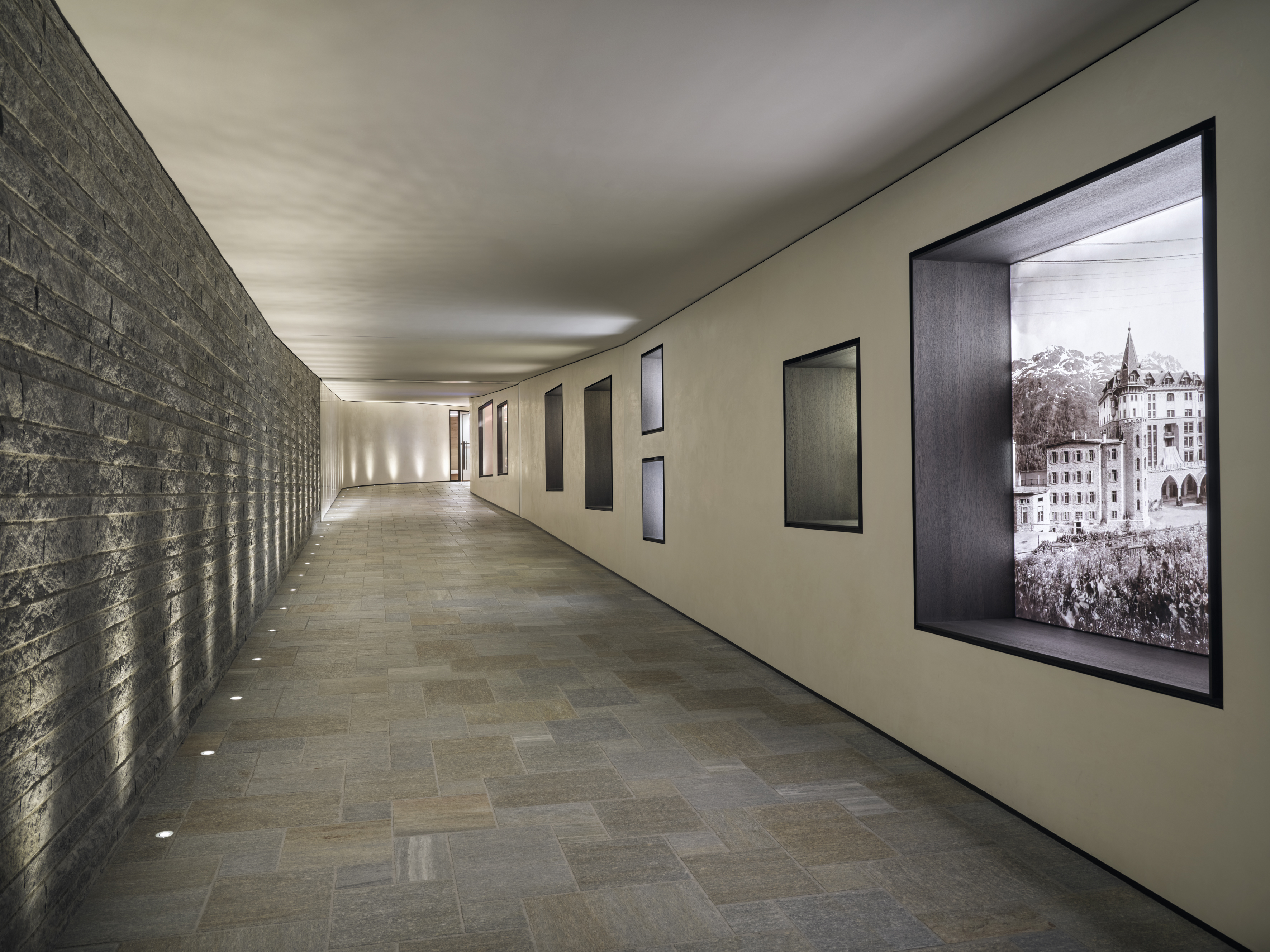
The façade is built from the handsome Alpine stone, Dorato Valmalenco, which has been intelligently layered to create archways that reflect the existing arcades of the village. Inside, the Wing’s soothing spaces are softened by a mountain-inspired palette and heat-treated oak, in order to quietly prioritise the framing of their varied views. The architecture studio collaborated with Loro Piana Interiors to create bespoke fabrics for the bedrooms, including tactile felts and wool cloths, while marbles dominate the serene bathrooms.
The result is an architectural dialogue between the Serlas Wing and the original Palace; between old and new, historical and contemporary, united by the common thread of timeless luxury. Guests of both will come together to enjoy the trappings of Badrutt’s, from its cathedral-esque grand hall with views over the lake and the Wes Anderson-style breakfast room – complete with harpist – to the cavernous subterranean spa with its outdoor thermal pool and sauna cabins.

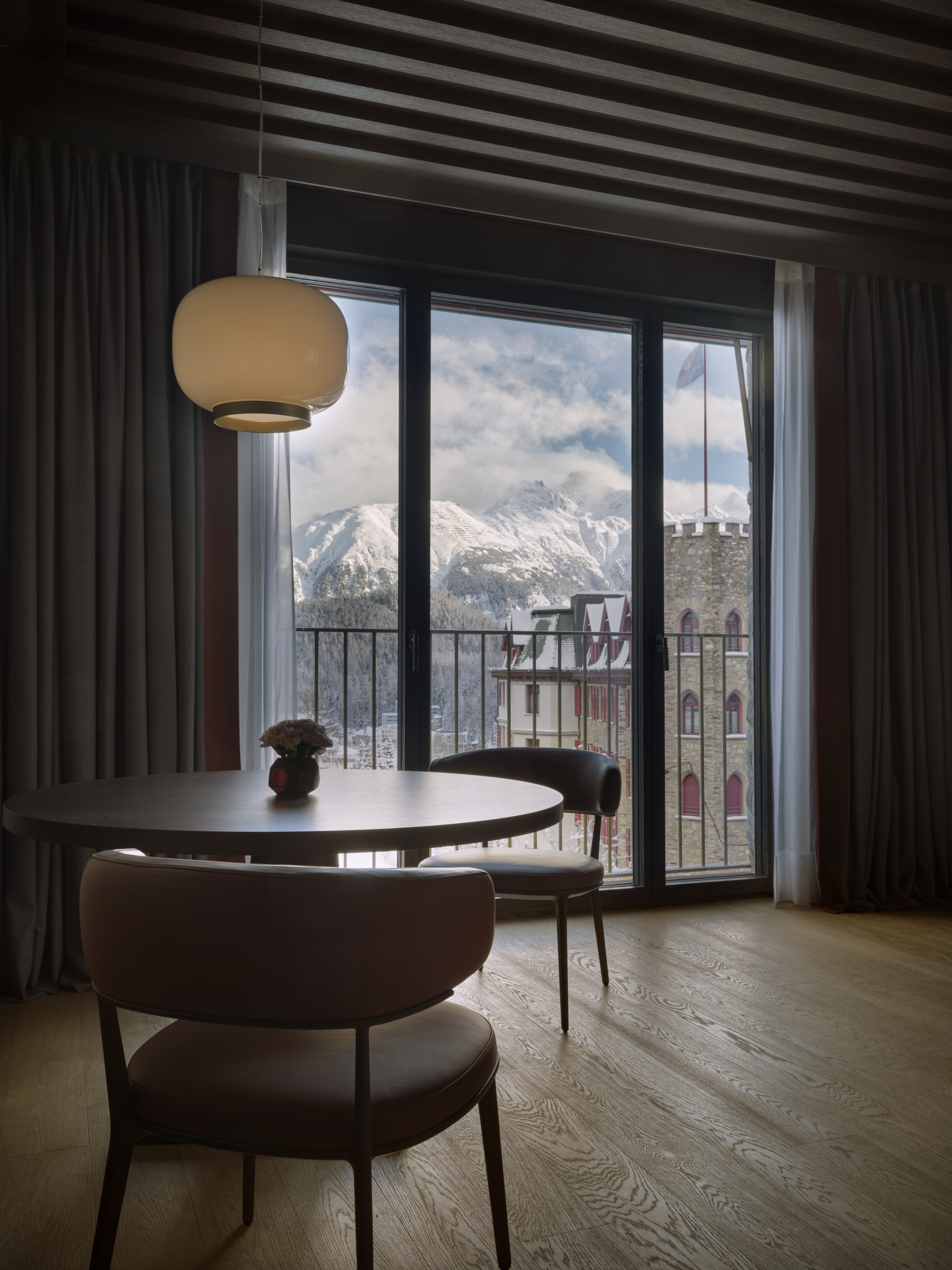
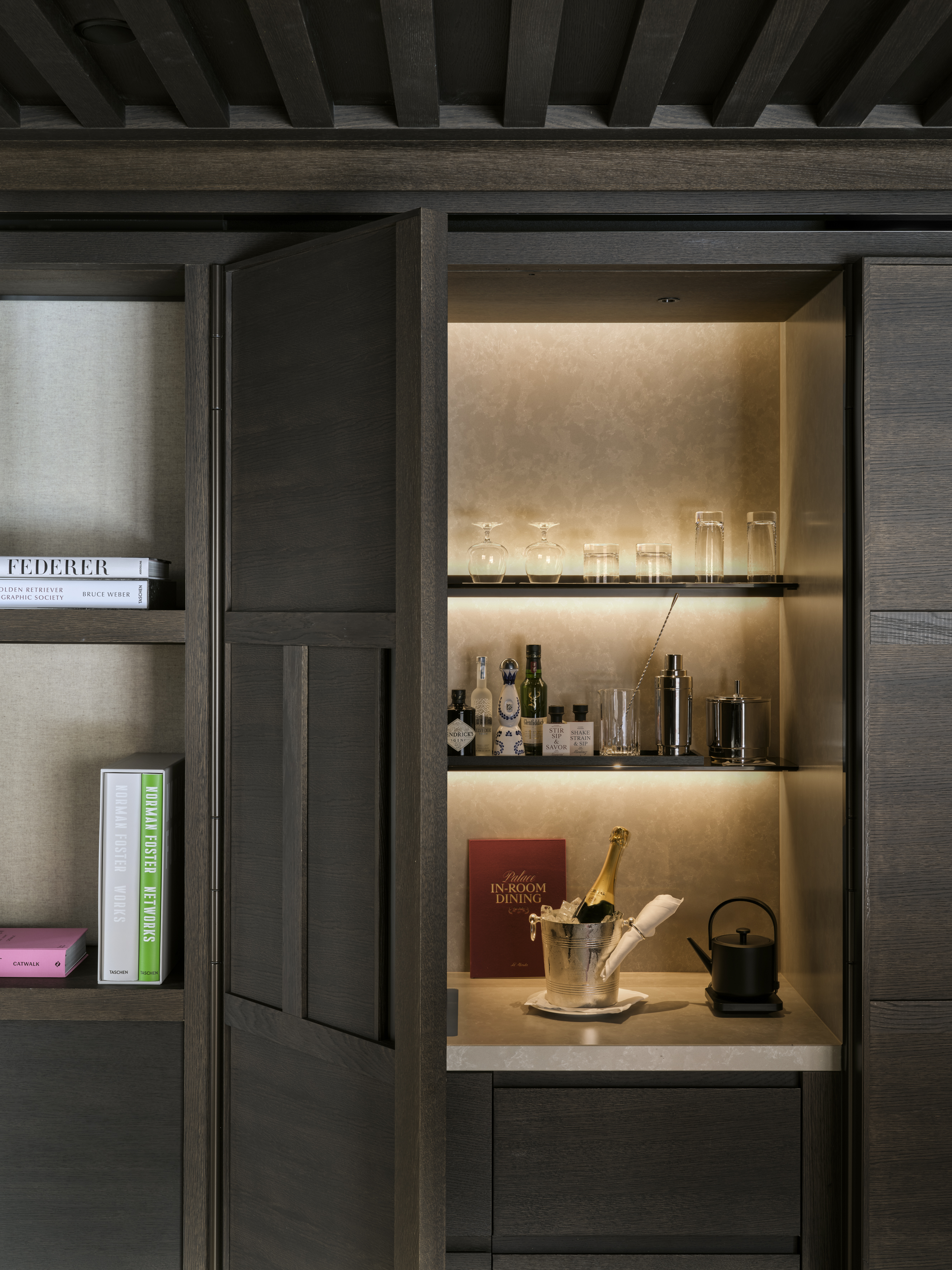
During the ski season, you are whisked off by the seamless shuttle service to the nearby Suvretta chairlift, for a leisurely few pistes in the morning – ideally under bluebird skies – before settling into a long alfresco lunch, and potentially a dance, outside at Paradiso, Badrutt’s mountain restaurant and club. Back at the hotel, you are spoilt for choice for where to dine, but the cosiest has to be Chesa Veglia. Nestled in the heart of the village, and accessed from the Serlas Wing and the Palace by a secret passage, it is a traditional mountain inn with a roaring pizza oven and a stove for fondues. Afterwards, head back to the palace for a disco in the basement at the King Social Club, where the great and good of St Moritz gather to dance til the very small hours, fuelled by Moritzinos – Badrutt’s signature cocktail made with Cointreau, fresh line and orgeat syrup.
And, although its seasoned guests may flock to St Moritz by private jet, whether for the infamous Cresta Run or its burgeoning arts scene and festivals such as Nomad, there is nothing lovelier than arriving by train through the Unesco-rated landscape. Just remember to pack some Champagne.
Receive our daily digest of inspiration, escapism and design stories from around the world direct to your inbox.
Badrutt’s Palace is located at Via Serlas 27, 7500 St. Moritz, Switzerland; badruttspalace.com
-
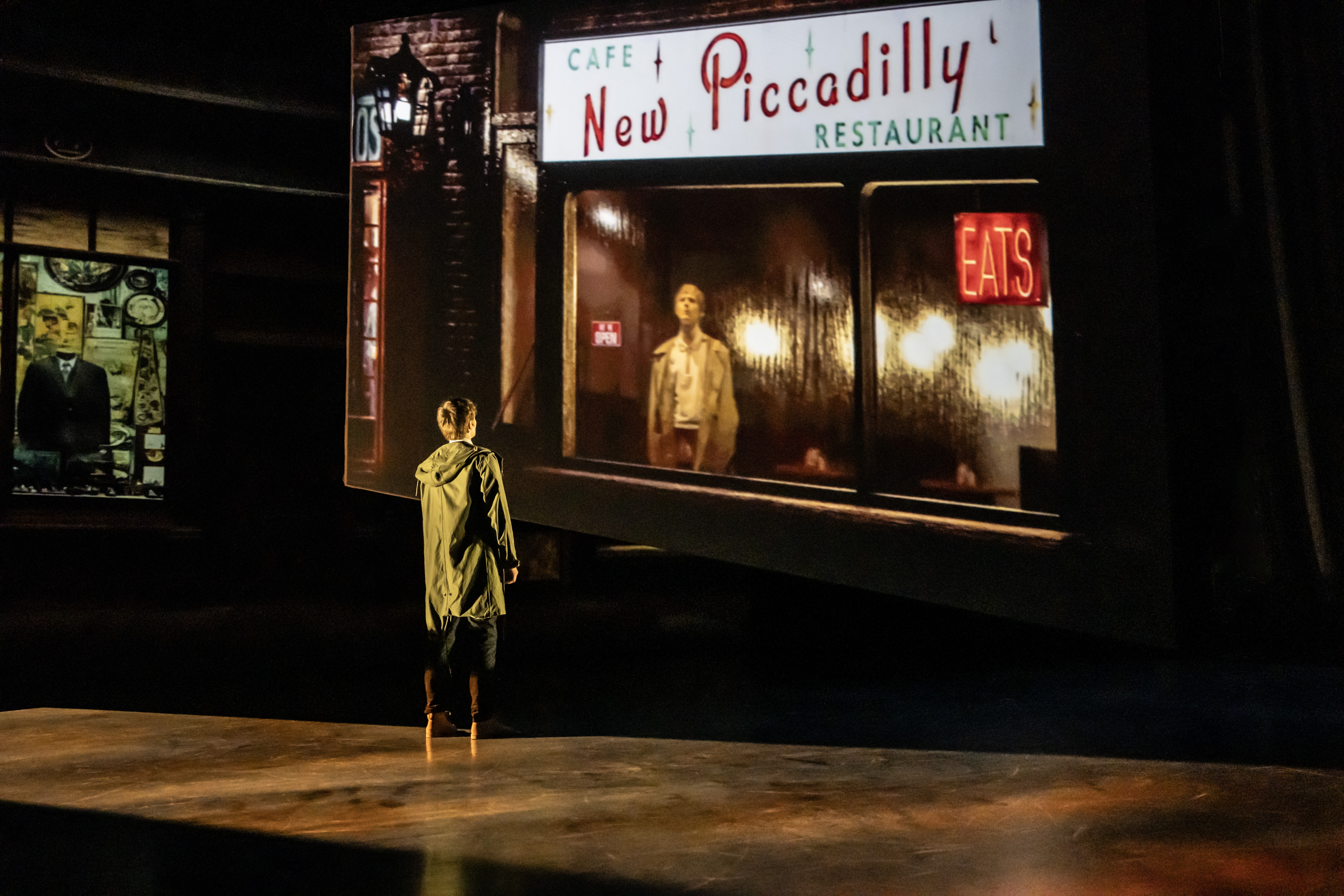 Paul Smith brings the Swinging Sixties to Sadler’s Wells in ‘Quadrophenia, A Mod Ballet’
Paul Smith brings the Swinging Sixties to Sadler’s Wells in ‘Quadrophenia, A Mod Ballet’In any imagining of Pete Townshend’s ‘rock opera’ – a chronicle steeped in the mythology of the 1960s – the suits need to be razor-sharp. ‘Quadrophenia, A Mod Ballet’ enlisted Paul Smith for the task
-
 When worlds collide: How a skateboard deck graphic became Plastikman, a techno icon for the ages
When worlds collide: How a skateboard deck graphic became Plastikman, a techno icon for the agesThe 1990s saw a sketch by graphic designer Ron Cameron define Richie Hawtin’s musical alias. He initially had no idea that it was happening
-
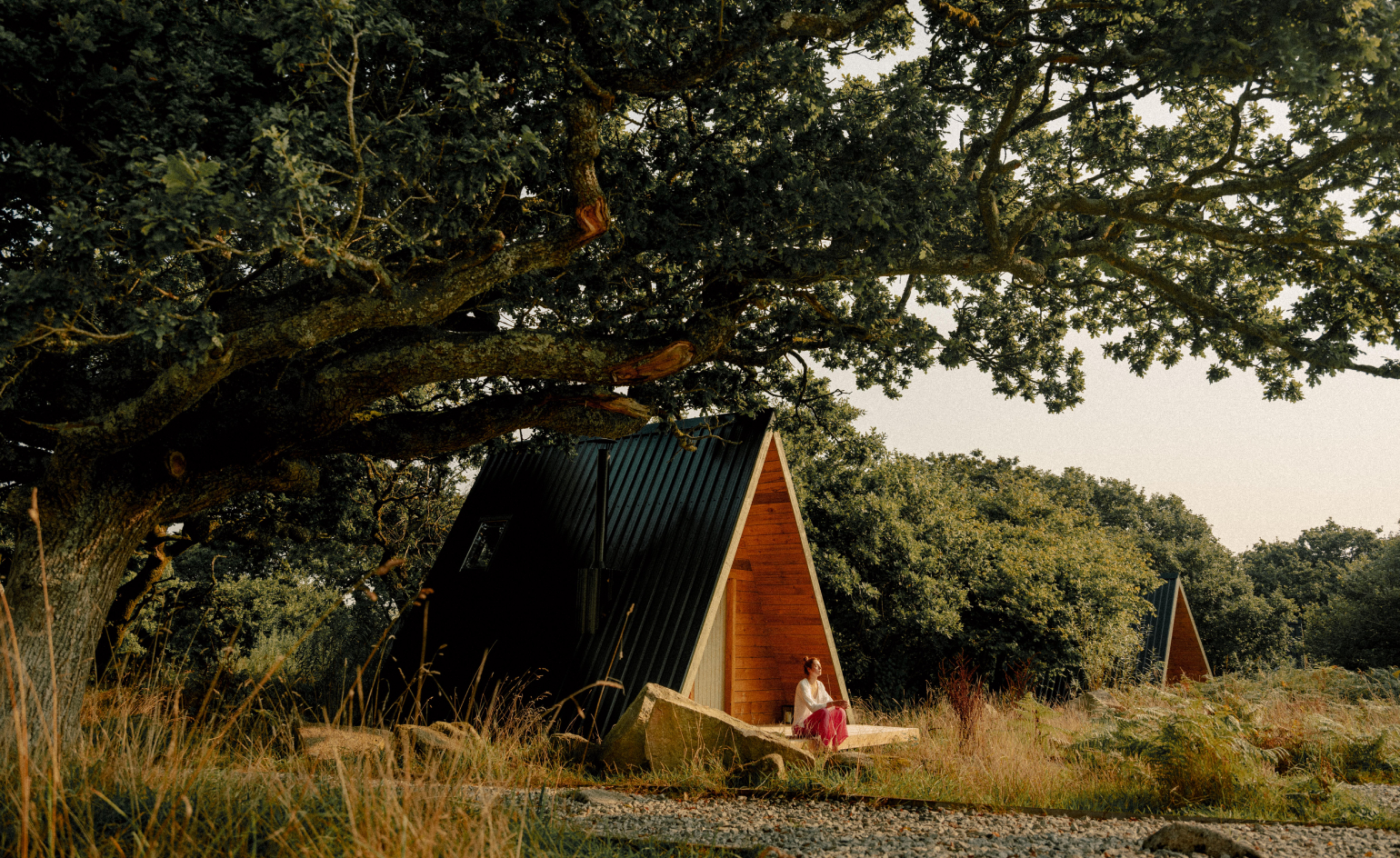 Ready to unplug? Sign up for this digital detox retreat in Cornwall
Ready to unplug? Sign up for this digital detox retreat in CornwallOffline escape provider Unplugged has partnered with Cabilla Cornwall to offer a phone-free, nature-immersive group experience on Bodmin Moor
-
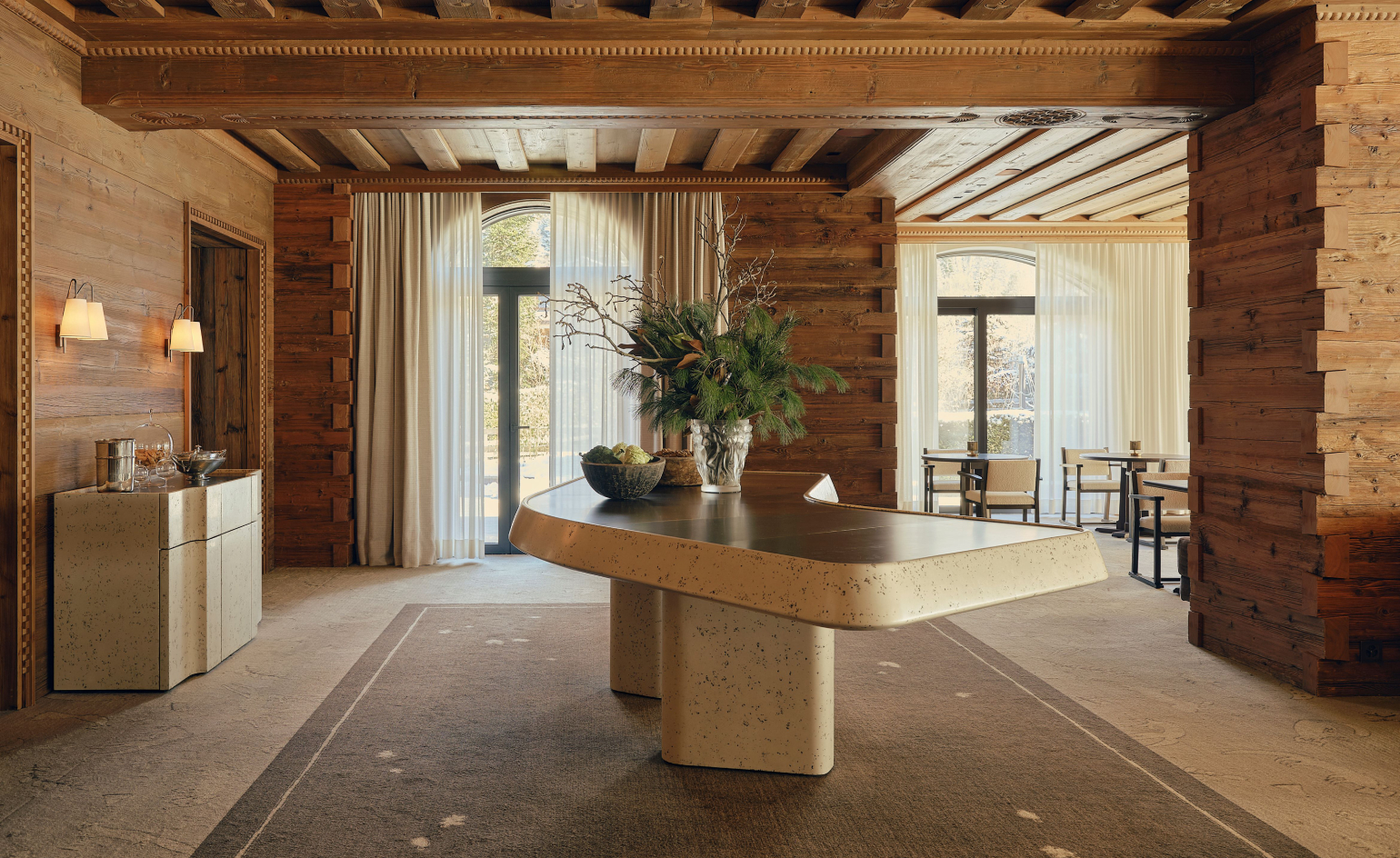 In Gstaad, a seasonal restaurant takes alpine dining to new heights
In Gstaad, a seasonal restaurant takes alpine dining to new heightsMonti nods to regional craftsmanship with furniture carved from locally-sourced elm and a seasonal menu from chef Martin Göschel
-
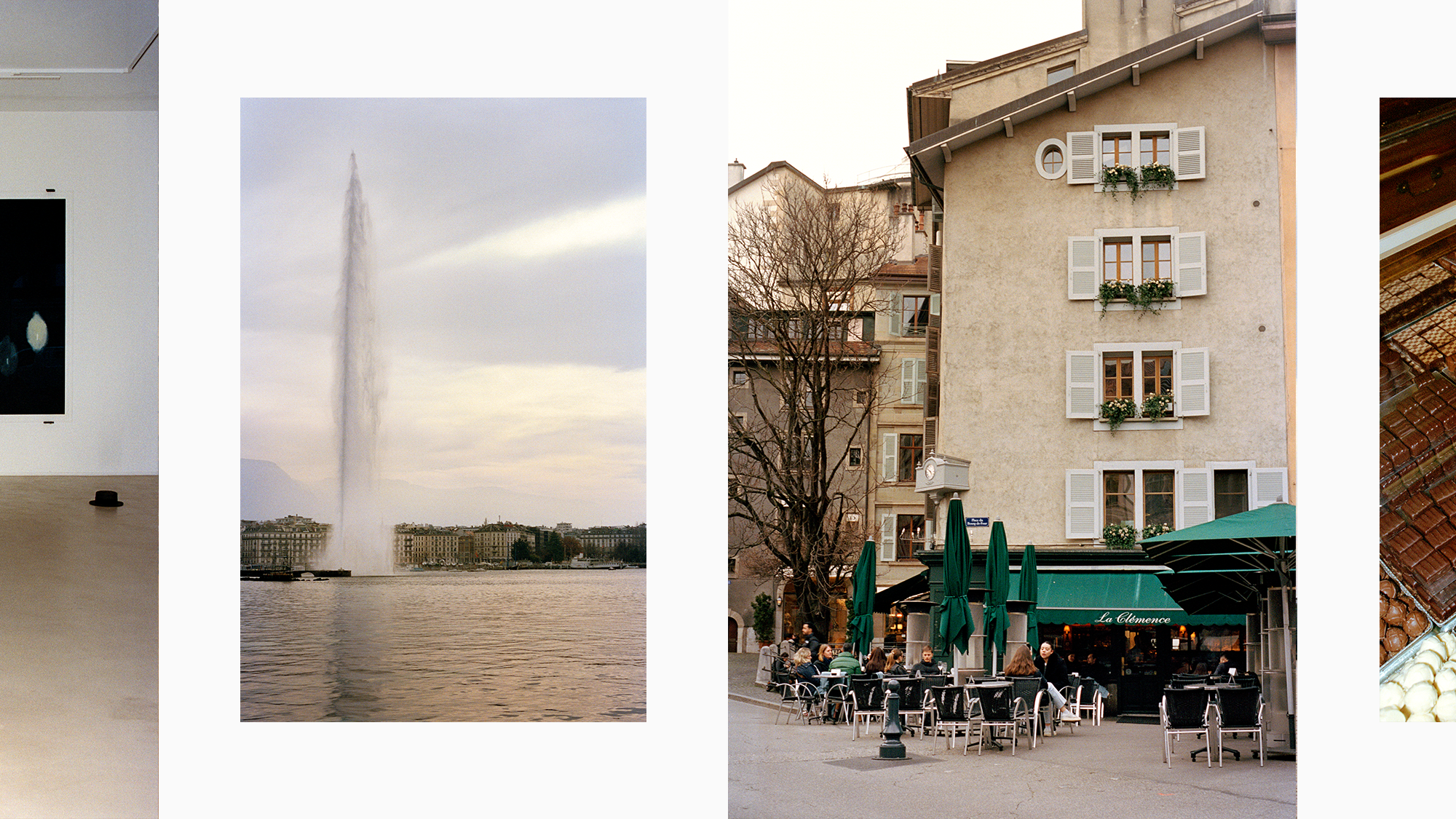 48 hours in Geneva: seek Le Corbusier, lakeside sauna, and Swiss chocs
48 hours in Geneva: seek Le Corbusier, lakeside sauna, and Swiss chocsWith Watches and Wonders 2025 in Geneva from 1-7 April, here are the city’s best downtime delights, from bars to bathing
-
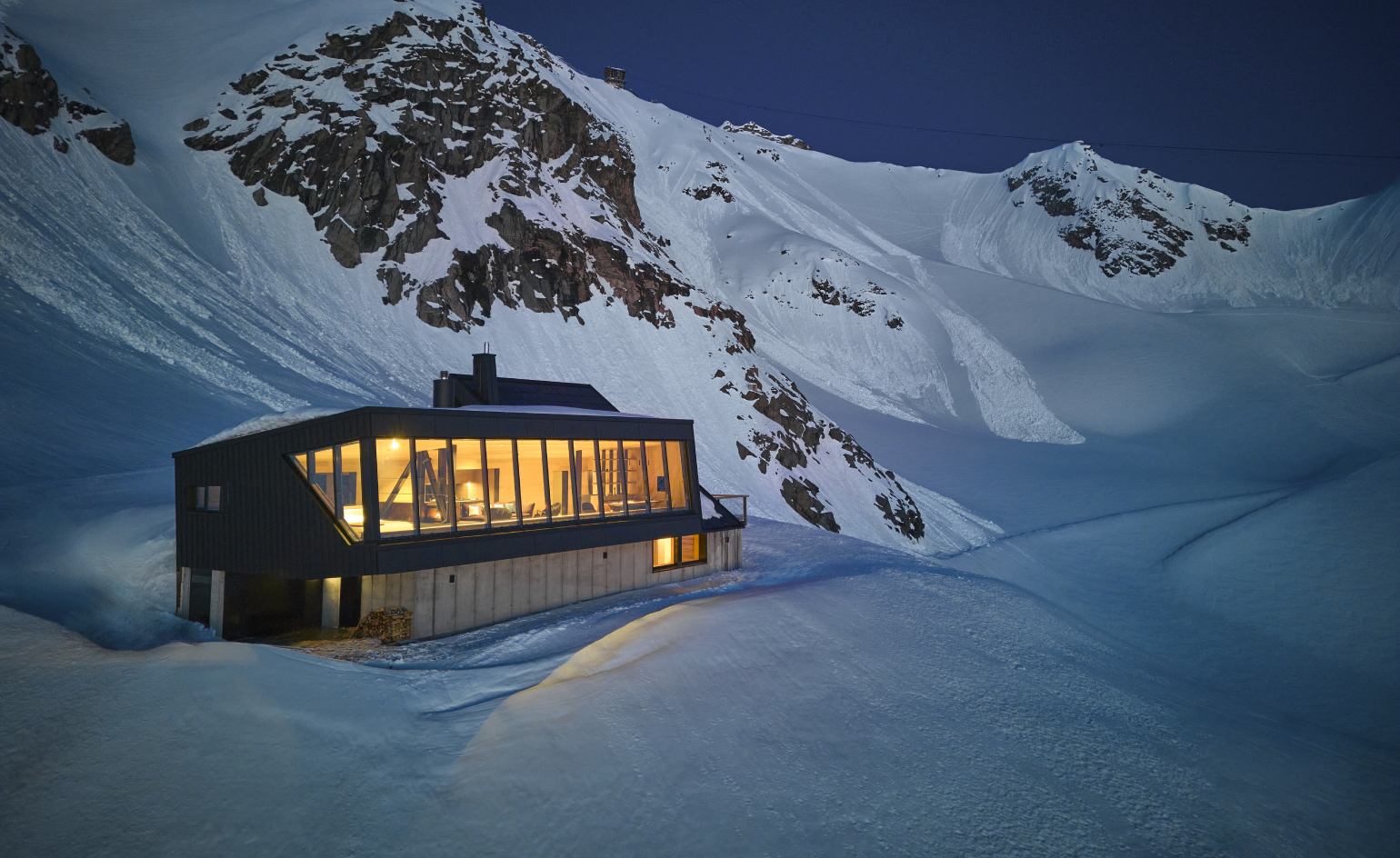 A minimalist, off-grid Swiss cabin redefines the ski-in, ski-out experience
A minimalist, off-grid Swiss cabin redefines the ski-in, ski-out experiencePerched above a millennia-old glacier, Cabane Tortin is a once-in-a-lifetime experience for athletic adventure-seekers – expect drama at 3,000m
-
 2025 getaways: where Wallpaper* editors will be travelling to this year
2025 getaways: where Wallpaper* editors will be travelling to this yearFrom the Japanese art islands of Naoshima and Teshima to the Malaysian tropical paradise of Langkawi, here’s where Wallpaper* editors plan to travel to in 2025
-
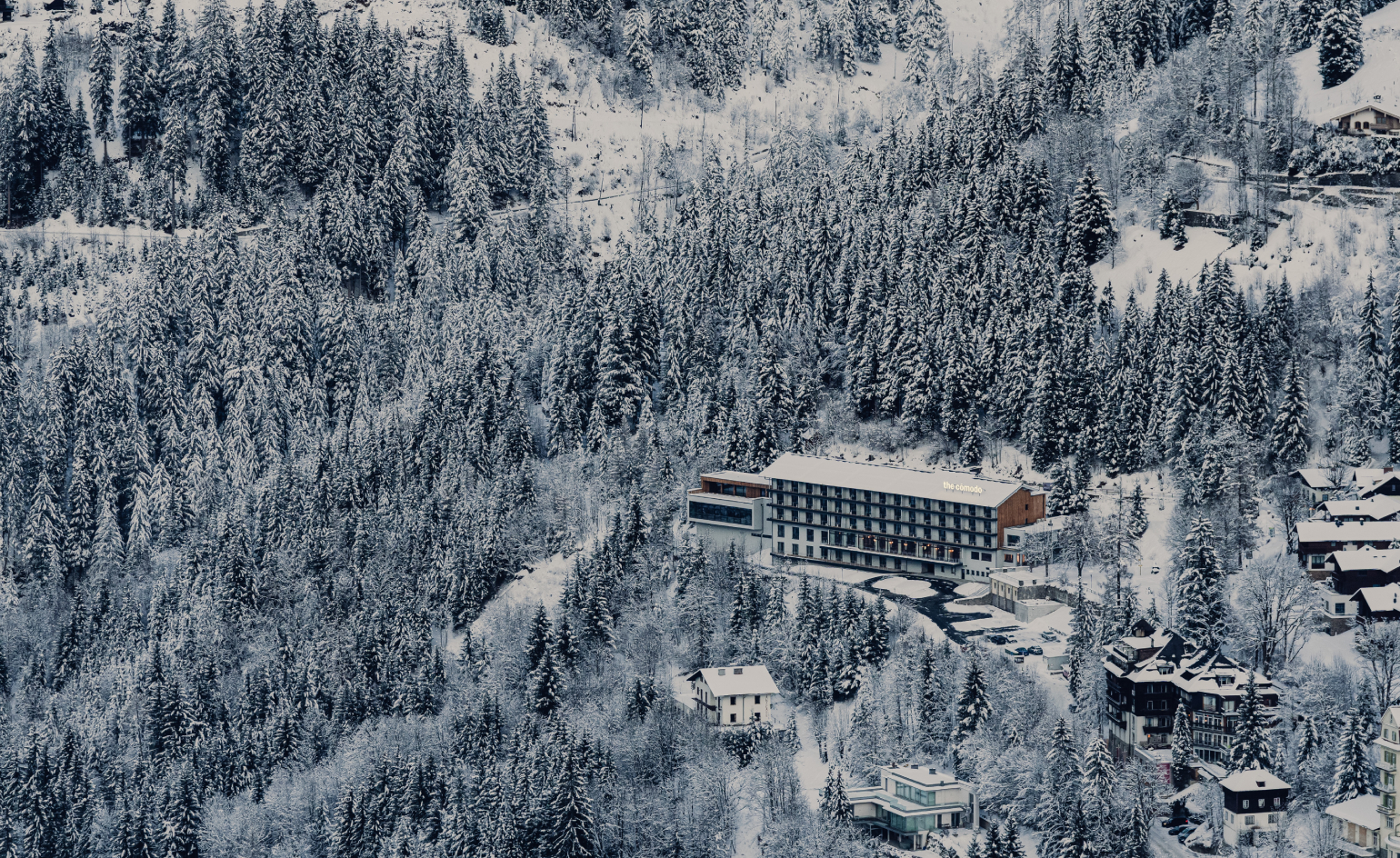 The cosiest alpine retreats to book in Europe
The cosiest alpine retreats to book in EuropeBrowse the Wallpaper* edit of European alpine retreats where to fully embrace the ski season
-
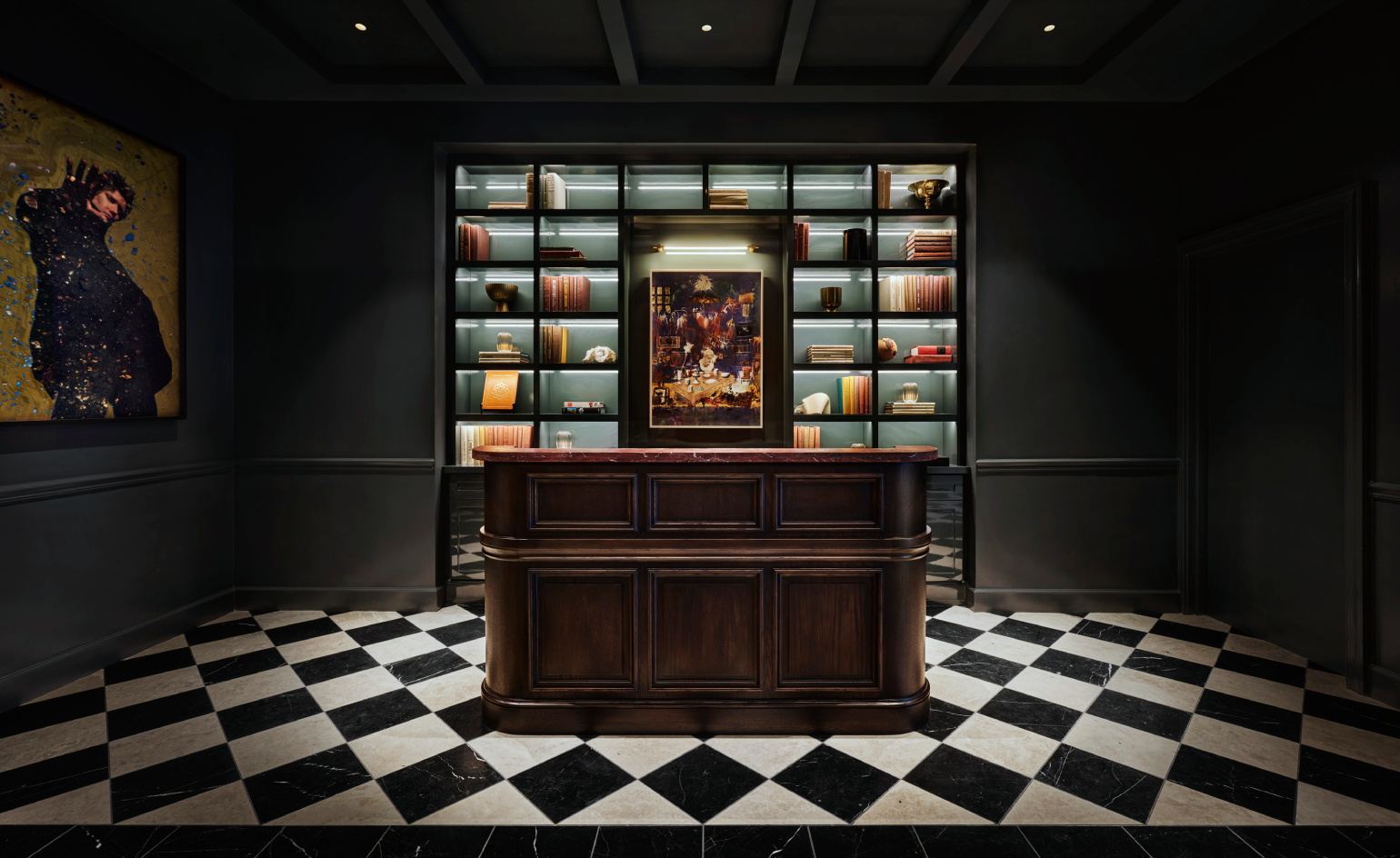 The world’s best new hotels we’re loving without reservation
The world’s best new hotels we’re loving without reservationExplore the best new openings in the world, from Sonolux, Quebec’s first immersive art hotel, to Mondrian Gold Coast, the brand’s Australian debut
-
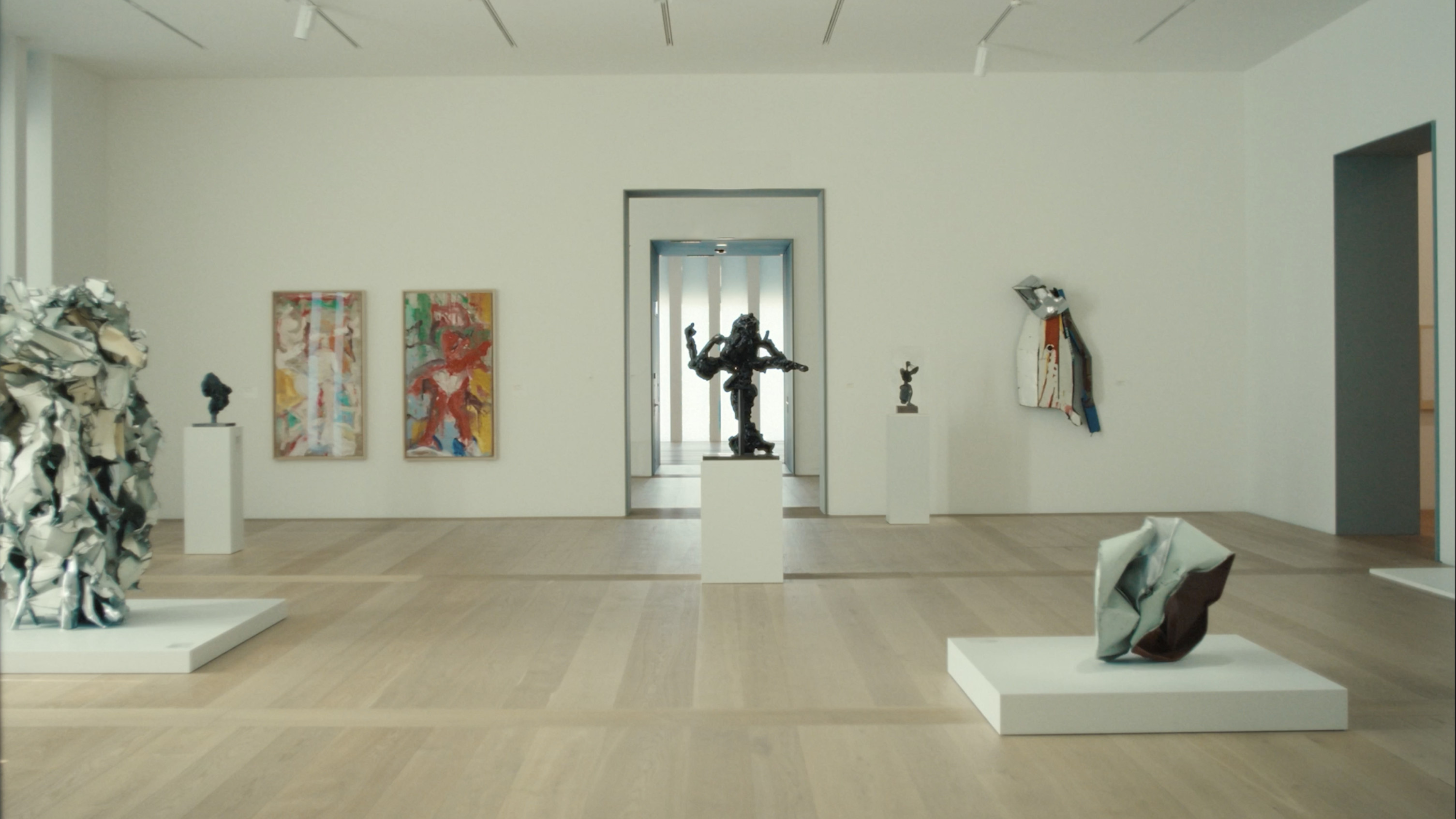 The don’t-miss Swiss art museums for your next cultural flit
The don’t-miss Swiss art museums for your next cultural flitMap these 11 Swiss art museums, worthy pitstops for the culturally curious, from Basel to Zürich and beyond
-
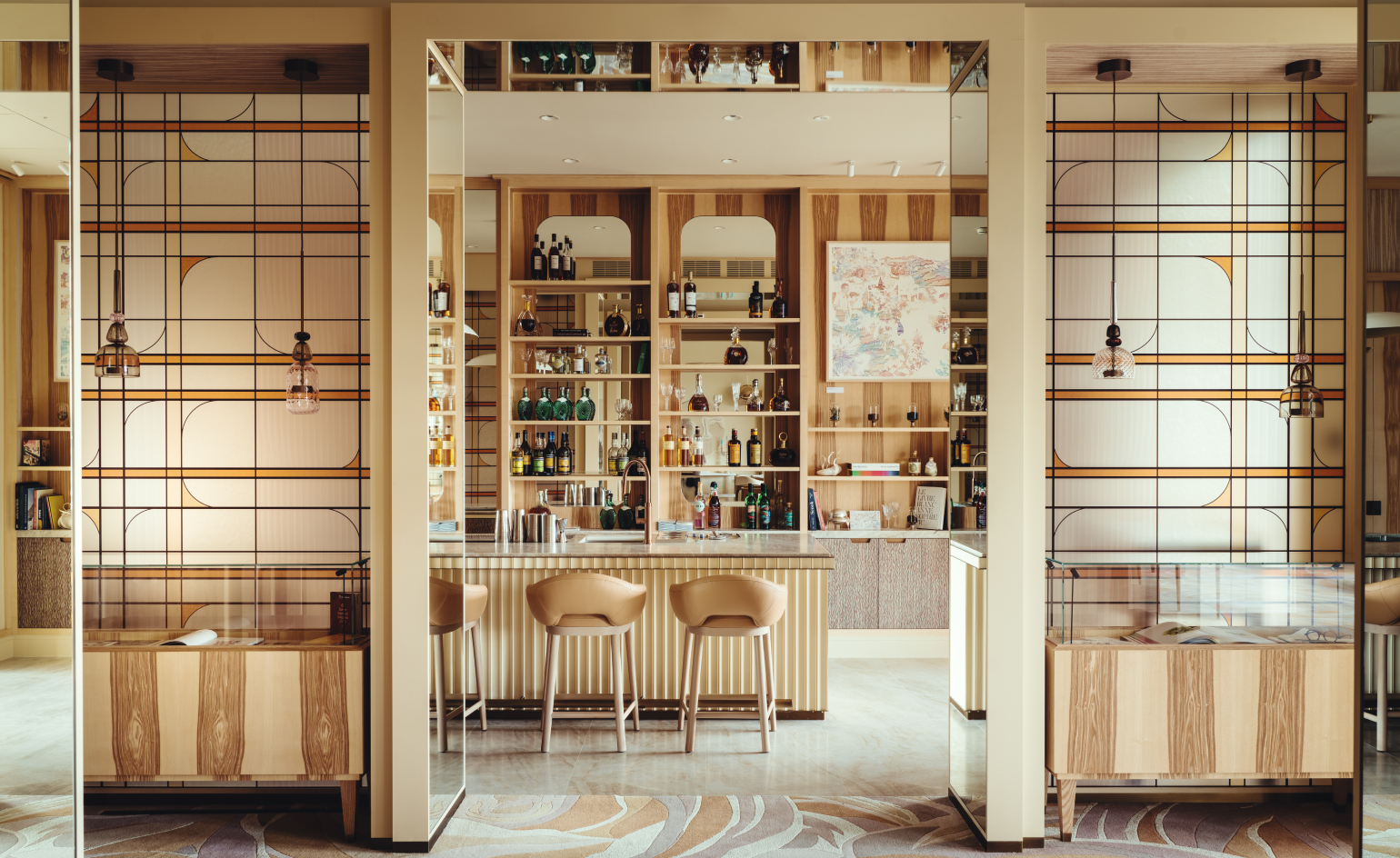 Chef Anne-Sophie Pic’s restaurant in Switzerland reopens following a makeover
Chef Anne-Sophie Pic’s restaurant in Switzerland reopens following a makeoverChef Anne-Sophie Pic’s restaurant at Beau-Rivage Palace sees a redesign by Tristan Auer, curated to match her feminine and floral cuisine